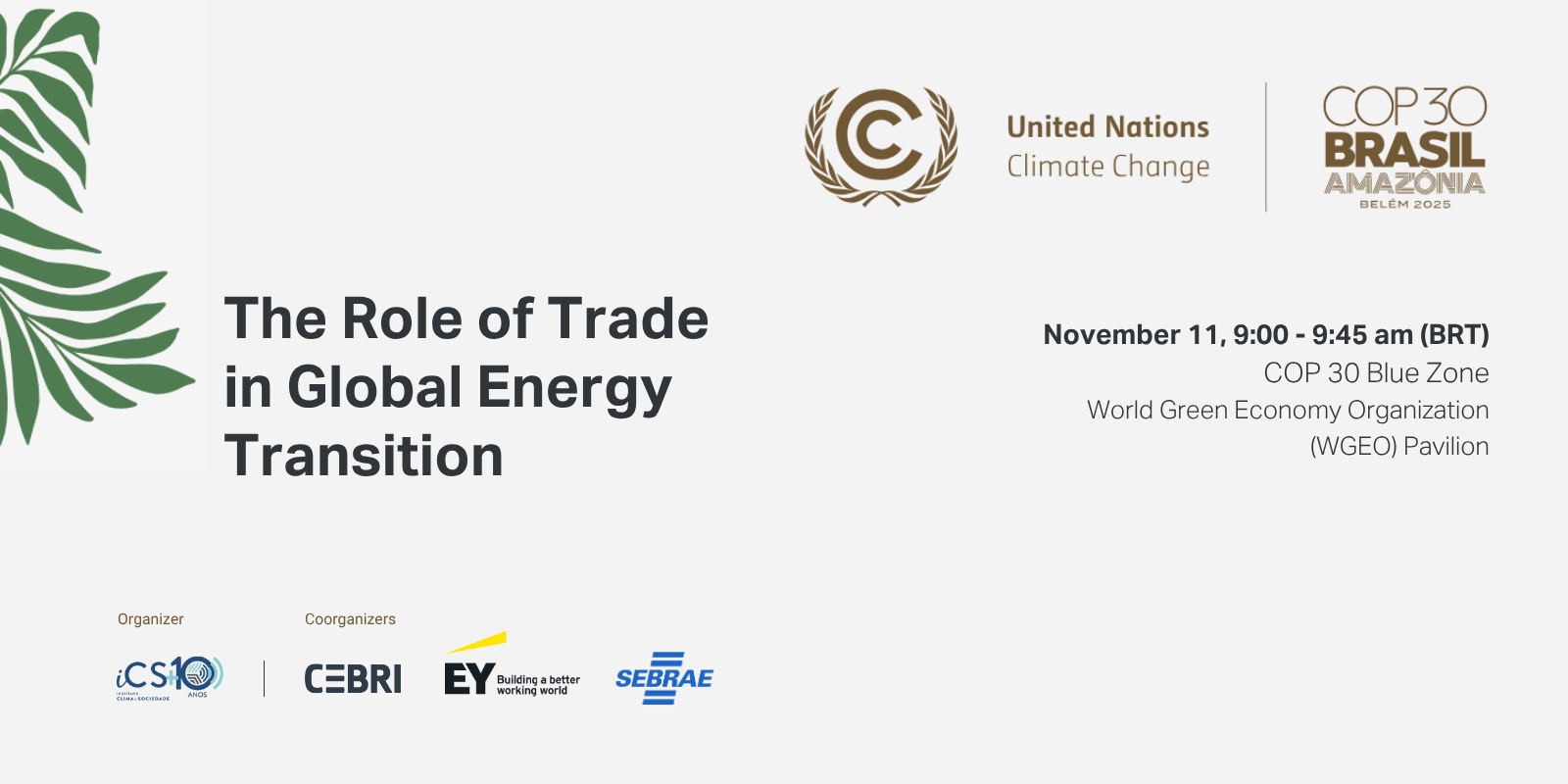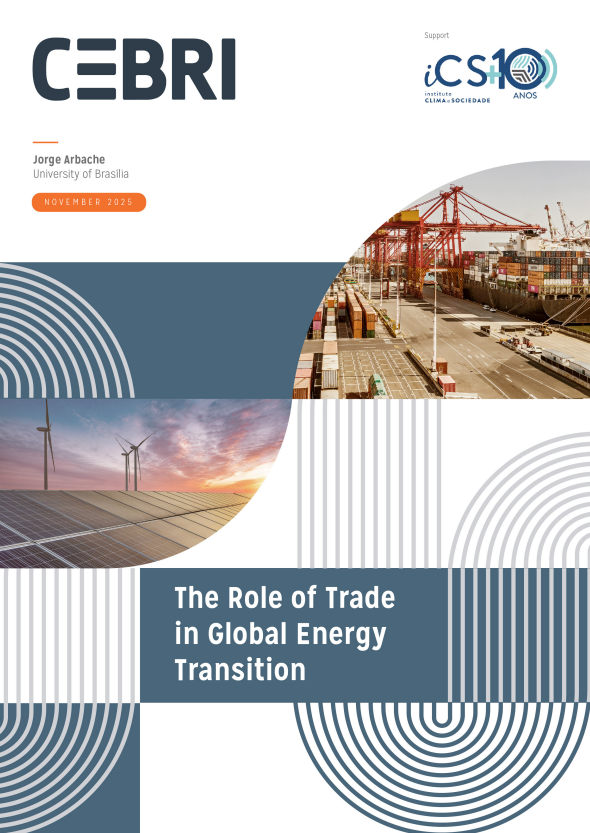In-person events
COP30 | WGEO Panel - The Role of Trade in Global Energy Transition
November 11, 2025
International trade may be the missing piece to scale and accelerate the global energy transition. The new paper, authored by Jorge Arbache, explains why and how trade can drive global decarbonization: it enables the relocation of energy-intensive production to regions with renewable resources and lower costs, cutting both global emissions and transition expenses.
This “carbon arbitrage” creates an economic, social, and environmental virtuous circle — turning trade into an efficient climate instrument that transforms the energy transition from a fiscal burden into an opportunity for sustainable growth and industrialization. Green trade can attract investment and spark a new wave of green industrialization, especially for countries like Brazil. The paper outlines a new paradigm of global competitiveness grounded in climate efficiency, economic resilience, and green prosperity.
Read HERE.
Organizer: Institute for Climate and Society (ICS)
Co-organization: Brazilian Center for International Relations (CEBRI), EY, and Brazilian Micro and Small Business Support Service (SEBRAE)
Speakers: Jorge Arbache (University of Brasilia and ICS), Mathilde Mesnard (OECD), Ricardo Assumpção (EY), Bruno Quick (SEBRAE) moderado por Mônica Sodré (Meridiana and CEBRI)
International trade may be the missing piece to scale and accelerate the global energy transition. The new paper, authored by Jorge Arbache, explains why and how trade can drive global decarbonization: it enables the relocation of energy-intensive production to regions with renewable resources and lower costs, cutting both global emissions and transition expenses.
This “carbon arbitrage” creates an economic, social, and environmental virtuous circle — turning trade into an efficient climate instrument that transforms the energy transition from a fiscal burden into an opportunity for sustainable growth and industrialization. Green trade can attract investment and spark a new wave of green industrialization, especially for countries like Brazil. The paper outlines a new paradigm of global competitiveness grounded in climate efficiency, economic resilience, and green prosperity.
Read HERE.
Organizer: Institute for Climate and Society (ICS)
Co-organization: Brazilian Center for International Relations (CEBRI), EY, and Brazilian Micro and Small Business Support Service (SEBRAE)
Speakers: Jorge Arbache (University of Brasilia and ICS), Mathilde Mesnard (OECD), Ricardo Assumpção (EY), Bruno Quick (SEBRAE) moderado por Mônica Sodré (Meridiana and CEBRI)


